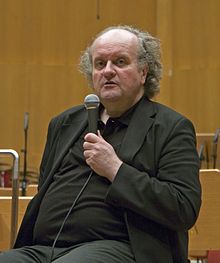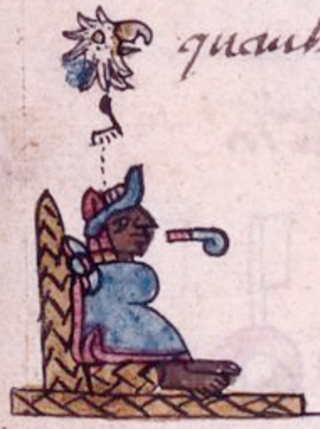
Cuauhtémoc, also known as Cuauhtemotzín, Guatimozín, or Guatémoc, was the Aztec ruler (tlatoani) of Tenochtitlan from 1520 to 1521, making him the last Aztec Emperor. The name Cuauhtemōc means "one who has descended like an eagle", and is commonly rendered in English as "Descending Eagle", as in the moment when an eagle folds its wings and plummets down to strike its prey. This is a name that implies aggressiveness and determination.

Marina or Malintzin, more popularly known as La Malinche, a Nahua woman from the Mexican Gulf Coast, became known for contributing to the Spanish conquest of the Aztec Empire (1519–1521), by acting as an interpreter, advisor, and intermediary for the Spanish conquistador Hernán Cortés. She was one of 20 enslaved women given to the Spaniards in 1519 by the natives of Tabasco. Cortés chose her as a consort, and she later gave birth to his first son, Martín – one of the first Mestizos in New Spain.

The Salzburg Festival is a prominent festival of music and drama established in 1920. It is held each summer, for five weeks starting in late July, in Salzburg, Austria, the birthplace of Wolfgang Amadeus Mozart. Mozart's operas are a focus of the festival; one highlight is the annual performance of Hofmannsthal's play Jedermann (Everyman).

The Hamburg State Opera is a German opera company based in Hamburg. Its theatre is near the square of Gänsemarkt. Since 2015, the current Intendant of the company is Georges Delnon, and the current Generalmusikdirektor of the company is Kent Nagano.
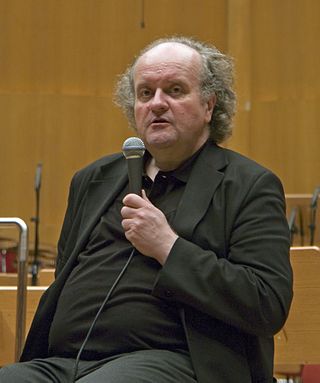
Wolfgang Rihm was a German composer of contemporary classical music and an academic teacher based in Karlsruhe. One of the most influential post-war European composers, he wrote more than 500 works and was particularly known for his operas. The premiere of Rihm's Morphonie at the 1974 Donaueschingen Festival won him international recognition. Rihm pursued a freedom of expression, combining avant-garde techniques with emotional individuality. His chamber opera Jakob Lenz was premiered in 1977, exploring the inner conflict of a poet's soul. When his opera Dionysos was first performed at the Salzburg Festival in 2010, it was voted World Premiere of the Year by Opernwelt.

Motezuma, RV 723, is an opera in three acts by Antonio Vivaldi with an Italian libretto by Alvise Giusti. The libretto is very loosely based on the life of the Aztec ruler Montezuma who died in 1520. The first performance was given in the Teatro Sant'Angelo in Venice on 14 November 1733. The music was thought to have been lost, but was discovered in 2002 in the archive of the music library of the Sing-Akademie zu Berlin. Its first fully staged performance in modern times took place in Düsseldorf, Germany, on 21 September 2005.

Klaus Huber was a Swiss composer and academic based in Basel and Freiburg. Among his students were Brian Ferneyhough, Michael Jarrell, Younghi Pagh-Paan, Toshio Hosokawa, Wolfgang Rihm, and Kaija Saariaho. He received the Ernst von Siemens Music Prize in 2009, among other awards.
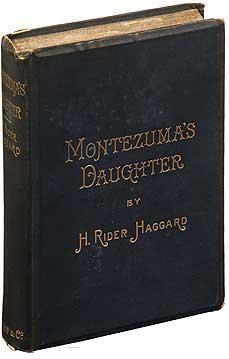
Montezuma's Daughter, first published in 1892, is a novel by the Victorian adventure writer H. Rider Haggard. Narrated in the first person by Thomas Wingfield, an Englishman whose adventures include having his mother murdered by his Spanish cousin Juan de Garcia, a brush with the Spanish Inquisition, shipwreck, and slavery. Eventually, Thomas unwillingly joins a Spanish expedition to New Spain, and the novel tells a fictionalized story of the first interactions between the natives and European explorers. This includes a number of misunderstandings, prejudice on the part of the Spaniards, and ultimately open war.

Azora, The Daughter of Montezuma is a 1917 opera in three acts by American composer Henry Kimball Hadley to a libretto in English by author David Stevens.

Montezuma is an opera in three acts by the American composer Roger Sessions, with an English libretto by Giuseppe Antonio Borgese that incorporates bits of the Aztec language, Nahuatl, as well as Spanish, Latin, and French.

The Spanish conquest of the Aztec Empire was a pivotal event in the history of the Americas, marked by the collision of the Aztec Triple Alliance and the Spanish Empire, ultimately reshaping the course of human history. Taking place between 1519 and 1521, this event saw the Spanish conquistador Hernán Cortés, and his small army of soldiers and indigenous allies, overthrowing one of the most powerful empires in Mesoamerica.

Xicotencatl I or Xicotencatl the Elder was a long-lived teuctli of Tizatlan, a Nahua altepetl (city-state) within the Confederacy of Tlaxcala, in what is now Mexico. According to one source, Xicotencatl was instrumental in allying the Tlaxcaltecs with the Spanish to overthrow the Aztec Empire.

Fernand Cortez, ou La conquête du Mexique is an opera in three acts by Gaspare Spontini with a French libretto by Étienne de Jouy and Joseph-Alphonse Esménard. It was first performed on 28 November 1809 by the Académie Impériale de Musique at the Salle Montansier.
The Indian Emperour, or the Conquest of Mexico by the Spaniards, being the Sequel of The Indian Queen is an English Restoration era stage play, a heroic drama written by John Dryden that was first performed in the Spring of 1665. The play has been considered a defining work in the subgenre of heroic drama, in which "rhymed heroic tragedy comes into full being." As its subtitle indicates, the play deals with the Spanish conquest of the Aztec Empire under Hernán Cortés.
William Dooley was an American bass-baritone singer who performed with many prominent opera companies. He began his career in Germany in the late 1950s, ultimately becoming a leading performer at the Deutsche Oper Berlin from 1962 to 1964. He then embarked on a highly successful career at the Metropolitan Opera where he sang regularly between 1964 and 1977. Between 1977 and 1982 he sang in 19 performances at the Vienna State Opera, after which he remained active as a freelance artist on the international stage through the early 1990s.
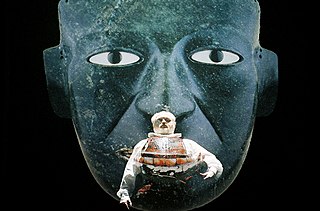
La Conquista is an opera in two acts by Lorenzo Ferrero set to a trilingual libretto by the composer and Frances Karttunen, based on a concept by Alessandro Baricco. It depicts the major episodes of the Spanish conquest of the Aztec Empire in 1521 and the subsequent destruction of the Aztec civilization. The libretto (English-Spanish-Nahuatl) is a blend of historical and literary sources drawn from transcriptions of indigenous and European literature, both kept, with some exceptions, in their original languages. The texts are taken from The Truthful History of the Conquest of New Spain by Bernal Díaz del Castillo, the Book XII of the Florentine Codex, the works of Juan Boscán Almogáver, Bernardino de Sahagún, Lope de Vega, Heinrich Heine, and from Aztec prayers, songs and poems as collected in Cantares Mexicanos and Romances de los señores de Nueva España.
Cornelia Kallisch is a German operatic mezzo-soprano who made an international career. She has participated in premieres of operas and in concert, and in award-winning recordings.

Dionysos is an opera by Wolfgang Rihm based on Friedrich Nietzsche's Dionysian Dithyrambs. The composer wrote the libretto and subtitled his work: "Opernphantasie nach Texten von Friedrich Nietzsche / Szenen und Dithyramben". It premiered at the Salzburg Festival on 27 July 2010.

Renate Behle is an Austrian operatic mezzo-soprano and soprano who made an international career, based in Germany. She was professor of voice at the Hochschule für Musik und Theater Hamburg from 2000 to 2010.
